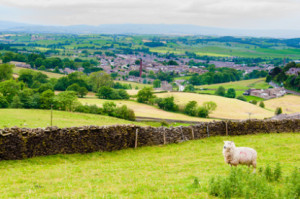What’s it about in short: Green Alliance’s policy director, Sue Armstrong Brown says if the market pays to protect the environment where it can and conservation intervenes to protect the environment where it must, is the best chance we have to achieve landscape scale restoration of natural places and systems.
When was it released: January 25, 2016
By whom: Green Alliance, Sue Armstrong Brown
Short extract:
The internecine struggle between supporters of natural capital and nature conservation continues to dominate the debate about how to restore the declining health of the UK’s natural environment. But what if they’re both right?
Proponents of the natural capital approach claim it’s the way to include the environment in economic decision making, and discount nature conservation as ‘utopian’. Opponents say it delegitimises protecting nature simply for nature’s sake, and provides a fig leaf to cover inadequate implementation of environmental policies.
Our new report, Natural partners: why nature conservation and natural capital approaches should work together, published today, identifies the distinctive strengths of the two schools of thought and concludes they should be complementary.
(…)
A strategic combination
Combining natural capital and conservation policy approaches could offer the best of both worlds. The strength of the natural capital approach is its potential to internalise many of the external costs of environmental damage into the economy, so that it makes good business sense to look after the environment and costs you to damage it.The degree of policy development needed to bring this about shouldn’t be underestimated, but with every flood event and global climate summit, the reasons to do it are getting clearer. The strength of the nature conservation approach, to complement this, is to cut through the complexities and perversities of commerce, protect the irreplaceable, no matter what the competing demands might be, and to recognise that we are all richer for cherishing nature.
Most of us will instinctively prefer one of the approaches to protecting the natural environment over the other. But aligning the two approaches, so the market pays to protect the environment where it can and conservation intervenes to protect the environment where it must, is the best chance we have to achieve landscape scale restoration of natural places and systems. In the end, nature needs people, and people need nature.


Nature & Nature conservation can happen only if the Nation, any one in the Global scenario, are governed by the people for the people.When democracy is mature and when the people are aware of the consequences of failure of Nature conservation and are also aware of the right way to conserve and manage the natural resources for the benefit of present as well as future generations, definitely there is level playing ground and conservation will happen. But when the scenario is different it will be only utopia to think that market forces or govt. in power will be able to do justice to the cause.In the global scenario, where other Nations are not able to do justice , in the era of globalisation , again the biggest casuality will be nature and nature conservation in all Nations including UK.We have to think about ways and means to do justice the cause in the prevailing scenario.
Thanks for your comment and the insight that nature conservation and social justice and responsibility are inevitably intertwined — especially in a globalized setting.